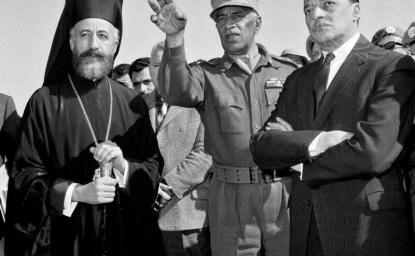Nathan Jones, a CWIHP intern and graduate student in George Washington University's History Department, will present his paper: Operation RYAN, Able Archer 83, and Miscalculation: The War Scare of 1983 at the International Graduate Student Conference on the Cold War at the University of California, Santa Barbara, 4-5 April 2008.
In his research, Jones explores the little known and poorly understood time period in 1983 when he feels that the US and the Soviet Union came closer to nuclear war than they had at any time since the Cuban Missile Crisis.
According to Jones, during the early 1980s, the Soviet leadership was convinced that the US was actively preparing to deliver a decapitating nuclear first strike against the USSR. In response, the KGB and GRU (Soviet military intelligence) were instructed to launch 'Operation RYAN' (Raketnoe Yadernoye Nastuplenie, Nuclear Missile Attack), a massive intelligence gathering operation aimed at picking up the warning signs of an impending US first-strike.
Within this context, in November 1983, NATO held its most realistic nuclear war games ever. Code named Able Archer 83, this exercise involved sitting heads of state of NATO countries, encrypted communications of a type never seen before by the Soviets, and ended with a highly realistic simulated nuclear release.
Given the Soviets' already heightened concern about a Western nuclear first-strike, along with their fear that the preparations for such a strike might be passed off as a war game, Jones postulates that this confluence of events may well have been the closest that the world has come to a nuclear war since 1962.
To learn more about this fascinating topic, read Operation RYAN, Able Archer 83, and Miscalculation: The War Scare of 1983.

Cold War International History Project
The Cold War International History Project supports the full and prompt release of historical materials by governments on all sides of the Cold War. Read more




